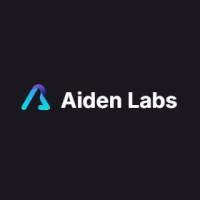《The DAO Takeover Playbook: The New DeFi Strategy》 by IGNAS, DEFIRESEARCH
Compiled by Katie Gu
When a DAO dissolves, the remaining funds are distributed to token holders, and sometimes a DAO closure can be more valuable than its operation. This was the case with the dissolution of the MEV project RookDAO. The ROOK token holders voted to shut down and distribute the $25 million treasury value. As a result, the token price increased by 5x. The price surge was mainly driven by the treasury value exceeding the total market cap of ROOK tokens.
It"s important to note that not all ROOK token holders will redeem their tokens. The ROOK example is just one part of the "new playbook" that DeFi DAOs are currently playing out in the bear market.
In this article, we will explore the strategy of dissolving DAOs to profit and analyze the potential risks in such events. This strategy is controversial, so DYOR.
What is "SlowRug"?
Those familiar with the crypto space should know about "rugpulls," where developers suddenly drain project funds for personal gains and exit the market. But there"s also something called "slowrug," which is a more subtle version where funds are slowly drained over a longer period of time, often disguised as legitimate operating expenses like salaries.
For example, RookLab, composed of 22 DAO contributors, receives $6.1 million per year ($300k per contributor). However, the team has been unable to provide a roadmap or goals, even as the protocol"s trading volume decreased by about 78% in just six months.
"Slowrug" is more complex than it appears, as DAOs face several issues in such situations:
- Legal Uncertainty: DAOs are in a legal gray area, leading to uncertainty in operations, fund management, and taxation.
- Legal Compliance Relationships: Managing legal relationships with individuals and organizations globally becomes complex due to different jurisdictions.
- Liability Limitations: The potential liability of DAO token holders is a concern, and options include establishing a legal entity, a collective fund, or compensation fund.
- Governance: Balancing efficiency, decentralization, and transparency in governance is a major challenge.
- Talent Management: Recruiting, onboarding, and managing talent in DAOs can be difficult due to the lack of legal entities and self-directed nature of roles.
How do we oversee teams that don"t add value to token holders?
Some DAOs take responsibility through "self-dissolution." For example, the Fei core team (TribeDAO) decided to dissolve and distributed $220 million from its treasury to token holders. At the time of voting, TRIBE"s valuation was only $66 million, but now the trading price is $128 million.
In both the Rook and Tribe cases, the dissolution of DAOs was beneficial for token holders. But what happens when core team members resist governance voting? That"s where things get interesting.
Aragon
此时快讯
【PayCoin发行方完成新虚拟资产业务运营商信息安全管理系统初步认证】金色财经报道,PayCoin(PCI)发行方Pay Protocol AG(Pay Protocol)已获得韩国互联网振兴院(KISA)颁发的新虚拟资产业务运营商(VASP)信息安全管理系统(ISMS)的初步认证。
这使新虚拟资产经营者通过ISMS预备认证后可以获得“初步认证”,符合特定金融信息法的虚拟资产经营者申报条件。
此前,韩国金融服务委员会金融情报部门(FIU)表示不接受Pay Protocol的虚拟资产运营商变更报告,要求其在2月5日之前关闭相关服务。Pay Protocol承诺在最后期限前尽最大努力确保实名账户,否则将向当局申请临时禁令。Pay Protocol最初是一家虚拟资产钱包和存储公司,计划将经营范围扩至虚拟资产交易所。




